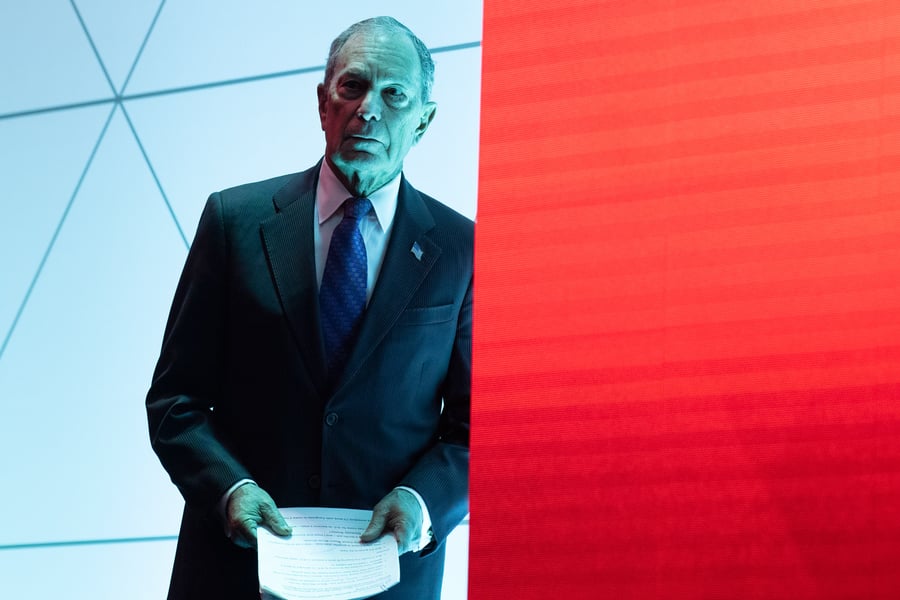WASHINGTON — Mike Bloomberg took the stage in the early evening on Super Tuesday and made a bold assertion. No matter how the results shook out that night, he told his supporters, “we have done something no one else thought was possible.”
In a sense, he was right: He spent half a billion dollars and the only thing he won outright on Super Tuesday was the territory of American Samoa. He’d spent huge sums of money in states like Virginia and Minnesota, where Joe Biden scarcely had a presence, and gotten trounced by the former vice president. He’d staked his campaign on a commanding Super Tuesday performance and ended the night with a paltry 44 delegates.
On Wednesday morning, Bloomberg announced he was dropping out of the race, ending one of the most expensive and disastrous presidential campaigns in history.
“Three months ago, I entered the race for president to defeat Donald Trump,” Bloomberg said in a statement. “Today, I am leaving the race for the same reason: to defeat Donald Trump — because it is clear to me that staying in would make achieving that goal more difficult.”
In his statement, Bloomberg said he was endorsing Joe Biden. “I’ve known Joe for a very long time,” Bloomberg said. “I know his decency, his honesty, and his commitment to the issues that are so important to our country — including gun safety, health care, climate change, and good jobs.”
He went on: “I’ve had the chance to work with Joe on those issues over the years, and Joe has fought for working people his whole life. Today I am glad to endorse him — and I will work to make him the next President of the United States.”
Bloomberg’s campaign lasted all of 101 days. It will now enter the pantheon of massively failed presidential campaigns next to Republican Jeb Bush’s 2016 run and Democrat Tom Steyer this election cycle. (Though any presidential campaign that gives the candidate a chance to dance onstage with Juvenile is a victory of a sort.)
When Bloomberg entered the race back in November, he was seen as a moderate alternative to Biden. His central campaign message was simple: As he put it at a recent Democratic Party dinner, “If you ask what my campaign is about, I am running to defeat Donald Trump.” He poured hundreds of millions of dollars from his $60 billion fortune into his campaign, hiring a staff of 2,500, opening dozens of field offices, and blanketing the airwaves with radio and TV ads. Drawing on his years of philanthropic support for city-level initiatives and public-policy issues including gun safety and the climate crisis, he racked up hundreds of endorsements from the mayors, state legislators, members of Congress, and more.
Having entered the race just months before the opening Iowa caucus, Bloomberg did not compete in the first four Democratic primaries and caucuses. Instead, he staked his campaign on a commanding performance on Super Tuesday. But the question hovered over Bloomberg’s campaign: Would his unprecedented spending translate into votes?
Democratic voters settled that question on Super Tuesday.
The question now is what happens to Bloomberg’s 35-state juggernaut of a presidential operation. To some Democrats, Bloomberg’s money and what he built with it were the main appeals of his candidacy. They imagined how all of those field offices and on-the-ground campaign staffers could lift down-ballot candidates in battleground states and states where governors and U.S. senators were on the ballot. “If you believe in everything the Democratic Party stands for, Bloomberg has that professionalism to be helpful to everyone on the ticket,” Gail Dunham, a North Carolina Democrat and former mayor, told me. “No one else is able to do that.”
Kevin Sheekey, Bloomberg’s campaign manager, hinted at what might come next for Bloomberg 2020. Last month, Sheekey told Vanity Fair that a post-Bloomberg Bloomberg campaign would morph into a six-state operation backed by a digital media and TV advertising campaign. “Even if Mike was not to become the nominee, and let’s say tomorrow he wasn’t, this is the one campaign that doesn’t end,” Sheekey said. “In fact, what it grows down to is larger than any other campaign that exists.”






































